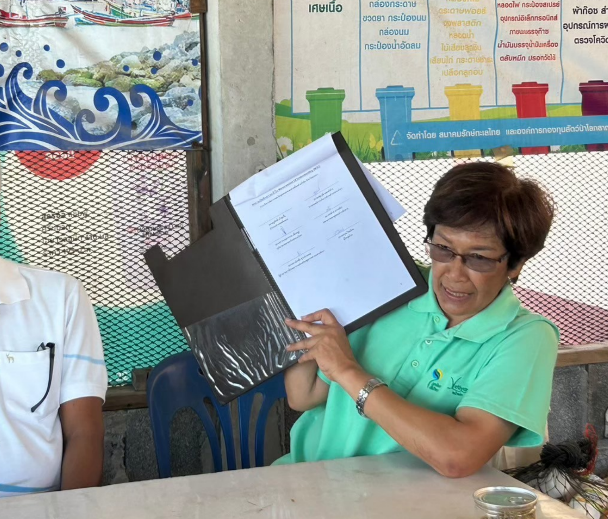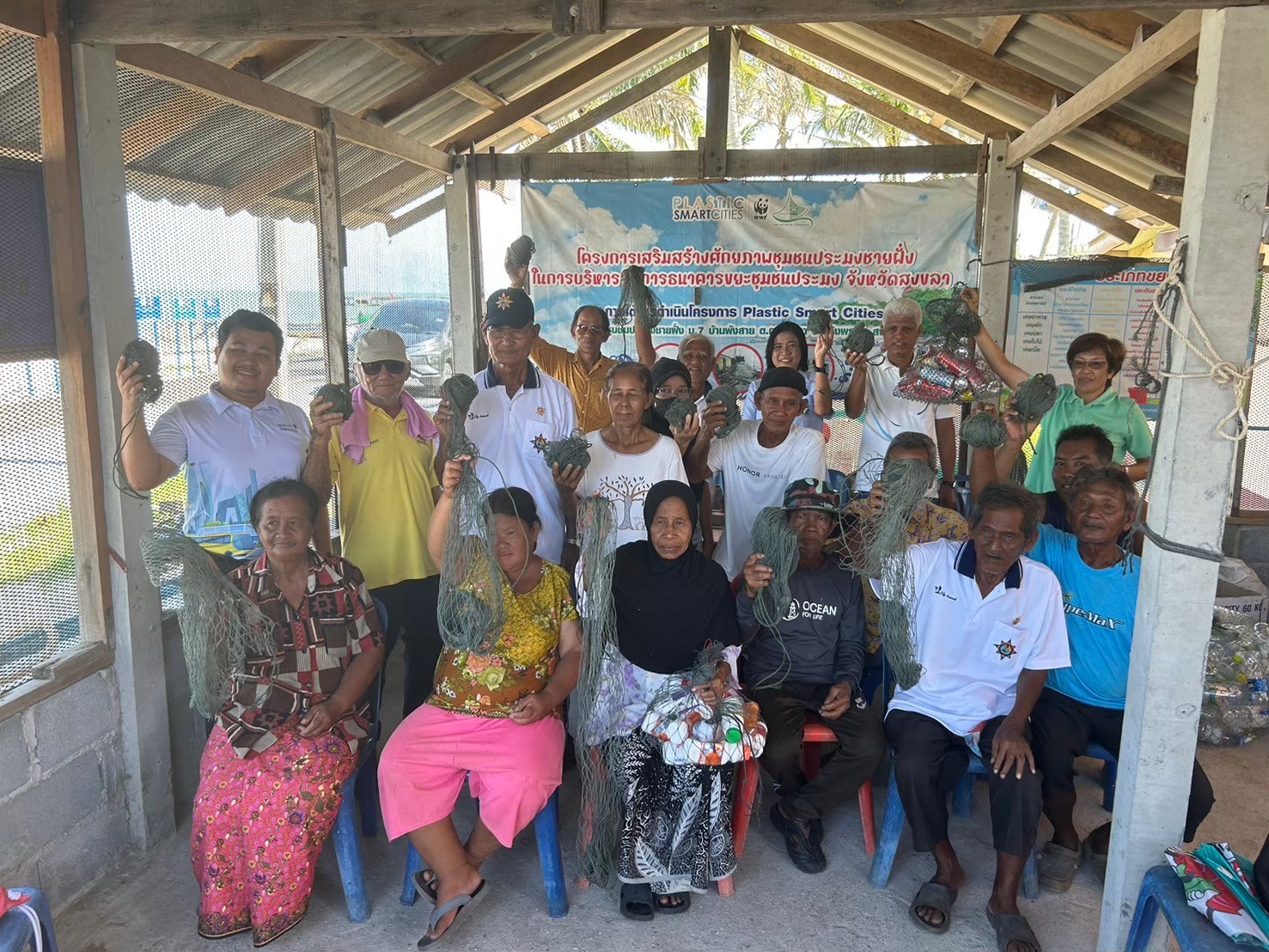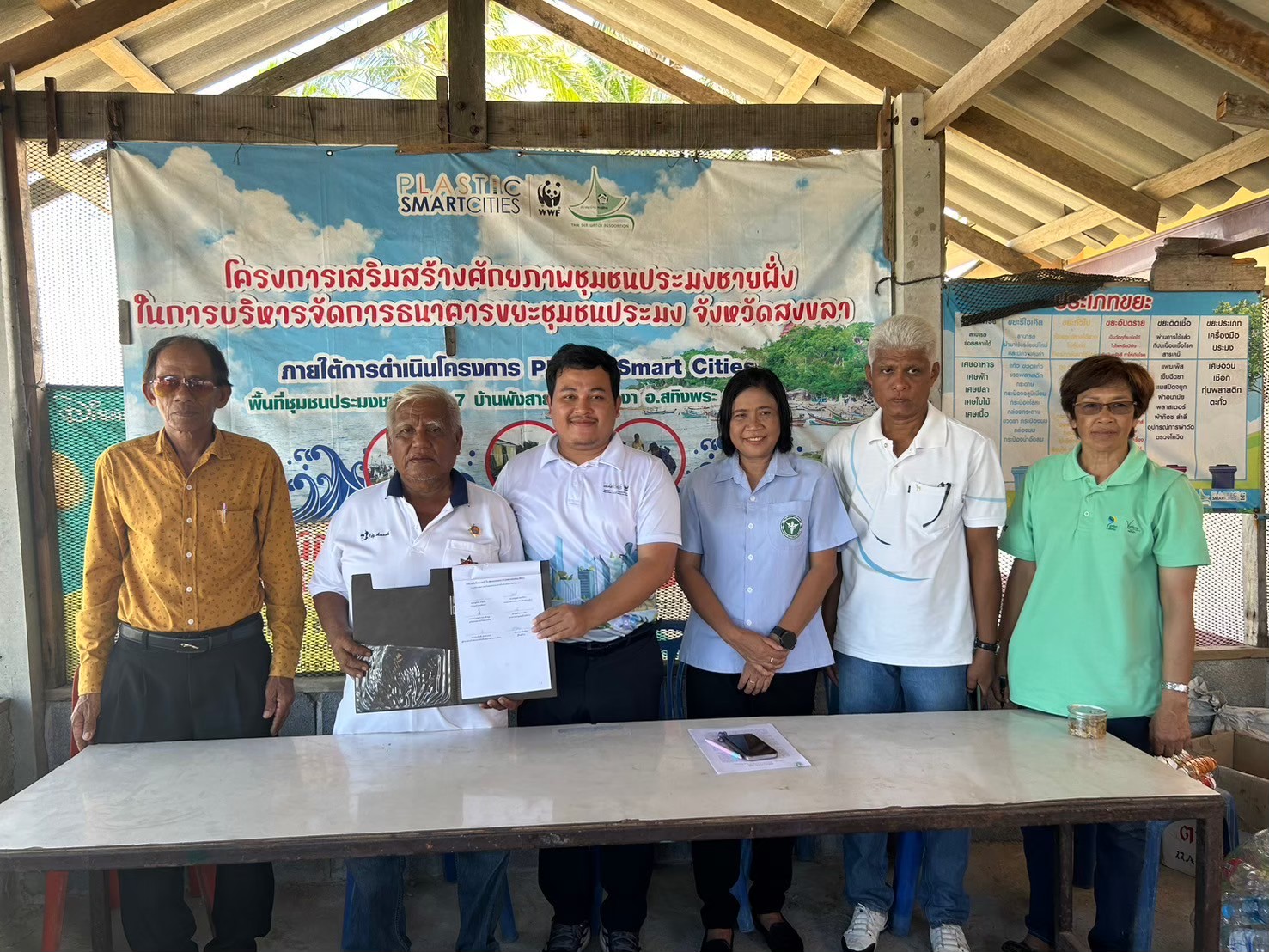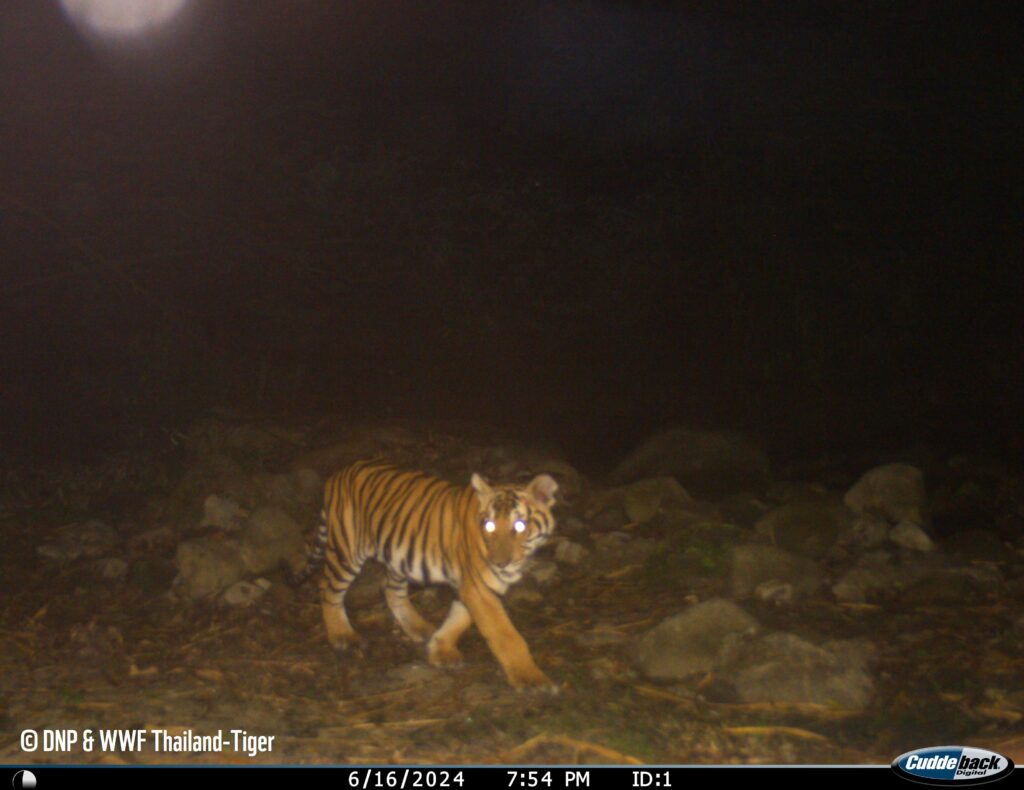As a fishing community, protecting the sea’s biodiversity isn’t just a duty – it’s a way of life.
In a groundbreaking stride toward coastal conservation, the Ban Phang Sai Community in Songkhla, Thailand, one of the community that joined Plastic Smart Cities (PSC), is demonstrating its leadership in scaling community-led environmental stewardship.
Traditionally a fishing community, Ban Phang Sai not only pioneered a waste management system to conserve coastal biodiversity locally but also successfully persuaded four stakeholders to commit to working together. The four groups — Thai Seawatch Association (TSWA), Sathing Phra Fisheries District Office, Kradangnga Subdistrict Administrative Organization, and Kradangnga Subdistrict Health Promotion Hospital — signed a Memorandum of Understanding (MoU) in September 2024.
The MoU aims to foster comprehensive waste management from source to disposal, starting with connecting community waste banks to Material Recovery Facilities (MRFs). By establishing model communities with effective waste practices who could lead by example, the partners aim to offer lessons learned and inspiration to other coastal communities.

Miss Benjawan Pengnu, the representative of the Thai Sea Watch Association, presenting the MoU at the community meeting
“As a fishing community, we hold the responsibility of protecting the biodiversity of the sea through proper waste management within our households and across our community,” shared Miss Benjawan Pengnu, a local stakeholder and the representative of the Thai Sea Watch Association, a local civil society organization implementing pilot solutions.
By enhancing community knowledge and awareness, promoting environmental health and well-being, and protecting seafood resources, Ban Phang Sai and its partners aim to restore and protect the area’s biodiversity, ensuring that the rich marine ecosystem remains a source of livelihood and pride for generations to come.
Addressing the global waste crisis—particularly marine debris—is highlighted as essential for achieving this goal; a key point being collaborative waste reduction initiatives.

Fishing nets being distributed to the community members for collecting marine debris
With this MoU, Ban Phang Sai Community is set to continue leading by example, offering inspiration to other coastal communities with its vision of a cleaner, healthier ocean. Through this shared commitment, Ban Phang Sai and its partners aim to protect and restore the area’s biodiversity, ensuring that the rich marine ecosystem remains a source of livelihood and pride for generations to come.
About Plastic Smart Cities
Plastic Smart Cities is a WWF initiative that supports a “No plastic in nature” agenda. Since 2018, the
initiative has supported cities and coastal centres in taking bold action to stop plastic pollution, with a goal to reduce plastic leakage into nature by 30%, and achieving no plastics in nature. In Thailand,
the programme focuses on four cities: Surat Thani, Samui Island, Songkhla and Hatyai.





